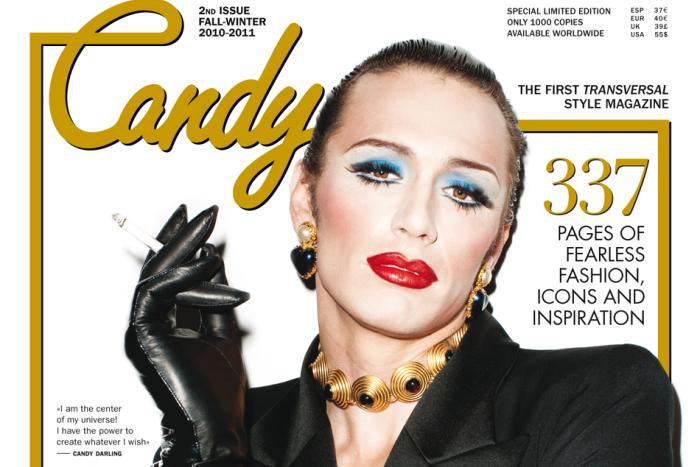I would like to take this opportunity to give young writers some advice in this, the New Year, because I am a great guy. What are my qualifications to give writing advice? Well, I’ve worked Monday happy hour at a number of bars that are no longer open; I have an associate degree that I received from a fake college after flunking out of high school; I have been paid to write about bands for, like, months now, and have a semi-regular column for VICE’s YouTube music channel’s blog, where I started my tenure by getting death threats from punks via Facebook; and at 38, I decided it was time to grow a mustache. Basically, as my tombstone will read, at least I’m not Chuck Klosterman.
Some of this advice will be serious as a heart attack, and some of it will be funny, like Thatcher dying. Which is which shall be determined later, depending on how many Facebook comments I get saying “funny.” Or, stars in my favor, “Funny!” Anything I say that upsets anyone in any way, however, is entirely a joke. That’s my first piece of advice to young writers in 2014: do not, under any circumstances, commit to anything.
Despite my coming from a music-writing background, this applies to all of you. It is important for writers to realize, however, that we are living in a golden age of music writing—that never, in the history of criticism, has music writing been better. The past was no great shakes, let me tell you: from Mick Jagger solo albums getting four-star reviews, to too many sycophantic articles about The Pixies in the ‘90s, to reviewers who thought Uriah Heep was terrible, punk was a fad, and Riot Grrrl was being silly because it didn’t want to be written about, it’s always been a horrific mess, held in complete contempt by everyone whose byline wasn’t above the wreckage. Pick up any issue of Rolling Stone, Raygun, Cream, NME, or SPIN from twenty or thirty years ago and give it a once-over. I’m not saying it will be worse than any given day of publishing from Pitchfork or Noisey (which, full disclosure, I write for, and all my editors are, roughly, 16) or eMusic or The Quietus, but it certainly won’t be better. Old issues of “classic” magazines are just as chock-full of trivial gossip, misquotes, needless cruelty, and PR-managed bullshit. We just tend not to talk about or remember all the puffery, nonsense, sub-Walter Winchell-ian takedowns, or, really, much of anything that didn’t lead with Frank Sinatra holding a glass of bourbon in one hand and a cigarette in the other.
The sheer volume of writing today bothers some people. Many see the lack of accredited gatekeepers at larger writing venues as one of the reasons for all this supposedly shoddy work—that an alleged epidemic of no editors and poor mentorship has led us to listicles, puff pieces, and twentieth anniversary oral histories. It’s true that, in the past, there were fewer people writing more words—those Jackson Browne profiles were crazy long—and that, briefly, suffering through a journalism degree seemed important for some reason. But music writing wasn’t better in that revered past—there was just a lot less of it. And you will never convince me that fewer voices are the answer to anything.
If you’d still like to be one of the chosen, though, here’s a very important thing to remember in 2014: people you write about have every right to hate and possibly kill you if they can. They made some work, presumably spent years on it, and you talked shit about it. Or tweeted some inanity at them. Or made a joke at their expense. They are entitled to wish you bodily harm, especially if you write for an outlet larger than your living room and they are a new musician. You are affecting their livelihood. There’s no such thing as “just the Internet” or “if you release your art to the public you should have thick skin.” Fuck that. This is actual life. Be wild and free in your criticism because you owe no one anything, but for the love of god, don’t cry when there’s blowback. When and if Hawthorne Heights finds me in the corner of some dank metalcore bar, it will be a dark day for old Zack-o, but I made a choice to talk shit about them because I think they are not good, and now they get to hate me until I die. Or not give a fuck. It’s entirely their prerogative. But there’s nothing more embarrassing than critics hiding behind “it wasn’t personal.” Of course it’s personal. You just punched their metalcore baby in the neck.
Next: don’t write like Lester Bangs. Right? Everyone will tell you that. Do. Not. Write. Like. Lester. Bangs. Or Hunter S. Thompson. You will be a bad music writer if you do. A related piece of advice: don’t write like any of the other ones, either. Don’t write like Christgau or Powers or Giddens or Hampton or Johnston or Coley. Or, conversely: try to write like any of them, all of them, and fail to do so in a spectacularly entertaining fashion. Music criticism in a world with a near-infinite number of easily clickable opinions has very little empirical value; only interesting writing, in this context, is worth a damn. I can find the release date for The Pizza Underground’s triple LP all on my lonesome, but, since our planet is dreary and MFA programs the world over insist on operating in defiance of Flannery O’Connor’s dictum to discourage more writers, I’m going to need you, at the very least, to be a spectacle. I myself find it helpful to try on the reg to write like Chuck Eddy. Having neither the erudition nor affection for KIX that he does, I fail. But there’s a market for my failure.
Speaking of the market: take every assignment you’re given. Just kidding. Don’t. Really don’t. In fact, take on a side job so that you can decline inane nonsense and still put food in the mouths of your AD&D miniatures. At some point in our cultural history, making fun of waiters who were “actors” became an easy joke in any discussion of service work. This is bullshit. Food has to get to the table somehow, and while dreams are very nice indeed, ain’t nothing wrong with having a job and doing community theatre. You can survive on your writing alone? Good for you. But if you think writing the “50 Skankiest Female Heads of State” has more inherent dignity than being a barista, you and I fundamentally disagree. Get a job. Interact with non-writers. Write better.
And outrage is fine. Even outrage about outrage is fine. I have to assume you are operating in good faith and are genuinely upset about what you claim upsets you. The thing about “Twitter activism” and its naysayers is that a lot of “Twitter activists” are actual activists. Whether it’s Suey Park, Prisonculture, Kenzo Shibata, Lauren Chief Elk, or too many others to even mention here—they are activists, they’re social workers, they work in prisons, they’re teachers, lawyers, and community organizers. Their outrage is grounded in a genuine sense of not just legitimate grievance but also possibility. So, please, don’t fall into the trap of confusing your irritation with your friends whom you suspect do nothing but repost weekly polemics with those who manage to both do actual work and tweet about social justice. Your friends are your friends, and deciding which of them you allow to grace your Facebook feed is on you. Other motherfuckers are in the trenches. So go nuts with online activism, and couple it with volunteering or, as mentioned above, a job that effects social change on any level whatsoever. But if you’re truly unwilling to do either of those things? Then, yeah, maybe chill on the Duck Dynasty think-pieces.
Also, not all of you will be paid. Because most musicians don’t get paid, and because of the inherently parasitical nature of our profession, a critic expecting to get paid is sometimes akin to a carpenter’s head lice expecting a percentage. Either way, write for the pleasure of it (though I’m fine with you quitting, too—there’s still a nursing shortage), just don’t be bummed if no one hires you. If someone does hire you, though, and they are profiting off of your labor in any way, for the love of Christ, expect to be paid. Demand it. Exposure is fine, but buying drugs and peanut butter with cash is better.
Finally, and I can’t state this strongly enough, there’s room for all of you. The Internet, from what I’m told, is pretty big. Boosters, cynics, millennials, olds, hacks, and dilettantes: there is no shortage of space for all of you at the “1,000 words about Vampire Weekend and race” buffet. When I see old writers attack the young for their enthusiasms and young writers attack the old for “bitterness” (by the way, come up with something better than “bitter” or “jaded”—it’s like telling us to smile more), I roll my eyes until they knock the moon from its axis and start counting out plagues for all the aforementioned houses. Whether you’re coming to the defense of a pop star who will be just fine, thanks very much, or bemoaning the fact that limited cassette tape runs have gone mainstream, there is a seat for you in music writing today. Just don’t turn it into a zero-stakes blood sport, and don’t make me choose sides: it’s impossible to determine, at this juncture in new media, which of you can best keep me from dying in a home a few years from now. Ask anyone: I will turn on you like the blessed tide. So keep your allegiance to the babies or the crones to yourself. No one outside the industry has fucks to spare. After all, what could be worse than writing about writing?






